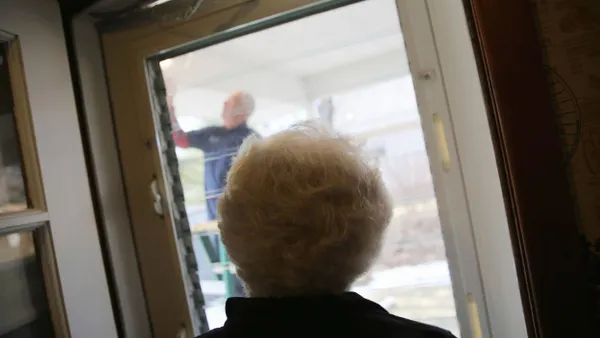Like any other investor-owned utility facing disruption, Duke Energy has come to an existential fork in the road: New business models or no? For Duke, the nation’s largest electric utility, the answer seems to be a resounding yes.
Duke is exploring “new business areas to get in,” Denis Garman, leader of Duke Energy’s energy management and information solutions group, told Utility Dive at the Smart Energy Summit in Austin, Texas. “We’re really trying to rethink our value proposition.”
“There are lots of new players coming into the marketplace. The rules are being rewritten as we speak,” Garman said. “It is incumbent upon us to be purposeful about how we move, and how quickly we move. Because the world is moving fast.”
Duke Energy is trying to create “enormous” value by being its customers’ “trusted energy advisor,” Garman told Utility Dive.
“Customers view us as the experts. We’re the energy guys,” Garman said. “It could be simple as a button on your phone: Speak to an energy advisor.”
"This is really the centerpiece of our value proposition," Garman said. “But we are just starting to scratch the surface.”
"There are no apathetic customers"
The customer relationship is arguably the most important advantage utilities have over new players in the marketplace.
But utilities haven’t “really delivered meaningful value in the past,” Garman said. “Customers are willing to engage.”
To those who would argue that customers don’t want to think about their energy use, Garman says “there are no apathetic customers – we just haven’t figured out to how to deliver value to them in a way that resonates.”
The popular view is that “energy is boring, energy is a commodity,” Garman said, but Duke Energy is “not finding that to be the case.”
“The hard part is making it relevant,” he said.
"A very simple little report"
Duke Energy is trying to do that. One of the first ventures based on this idea is Duke Energy’s “My Home Energy Report,” which launched in 2012.
The report seeks to tap into the “competitive nature of people” by comparing customers' energy usage to the average home and efficient homes with a similar profile.
Today, the report reaches 1.1 million customers. Duke plans to hit 2 million by the end of this year.
“That’s almost 20 million touches per year,” Garman said. “That’s not the bill, but that’s the second-most amount of touches we have within the company.”
“The entry point into the smart home is with our information,” Garman said. He emphasized the importance of extracting “meaningful value” from customers' data.
“We’re not saying – ‘If you want your usage, go to this website, download this spreadsheet and you’ve got three years worth of information.’ That’s not value,” Garman said. “We’ve got to take that information, add value to it and deliver it to customers in such a way that they can not only grasp quickly, but that they can act on even quicker.”
Personalized energy reports also open the door to service offerings, which are highly targeted and appear on the back of Duke's report.
“If you live in a house without air conditioning, you don’t want a tune-up offer,” Garman said. “We’ve captured a lot of information about our customers. We are getting much more relevant with it, so we can fine-tune offers even within that static report.”
There are an “almost infinite” number of ways “to slice our targeting,” Garman noted. As a result, My Home Energy Reports have seen “’take rates’ three times the Duke average.”
But My Home Energy Report is ultimately “a very simple little report,” Garman said. With Duke Energy "just scratching the surface” of the value that can be created from customer data, the roadmap is to “triple the offerings available.”
"Trusted energy advisor"
Duke Energy didn't invent the "trusted energy advisor" business model, but the nation's biggest utility is one of its more prominent examples.
“If you think about the utility model for the last 100 to 130 years, it’s probably moved faster in the last three,” Garman said. New opportunities, such as the "broader ecosystem around the connected home," are emerging -- but they won't last forever, Garman said, and "we've got to be very sensitive to that."
Duke's new "energy advisor" business model does not mean that it will relinquish its other roles, Garman emphasized. "We still have to make sure everything runs."
“We’re not going to open a clothing store. That would not be appropriate for us,” Garman said. “But all things centered around energy? We have some pretty good equity on the marketplace, and we’ve got permission to enter a lot of different spaces.”
"The relationship with the customer lets us in the door. It allows us to have a conversation,” Garman said. “Now the question is: What are we going to say?”














